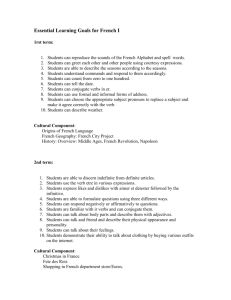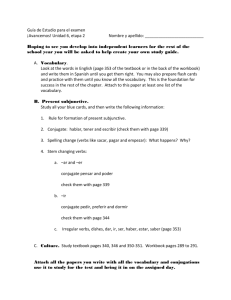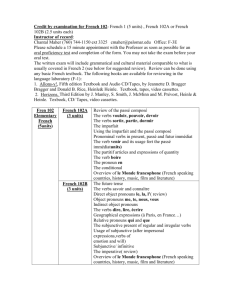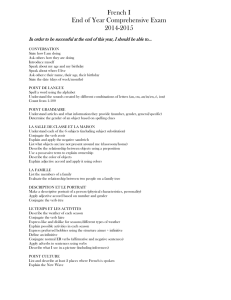French 3 end of year final exam study guide 2014
advertisement
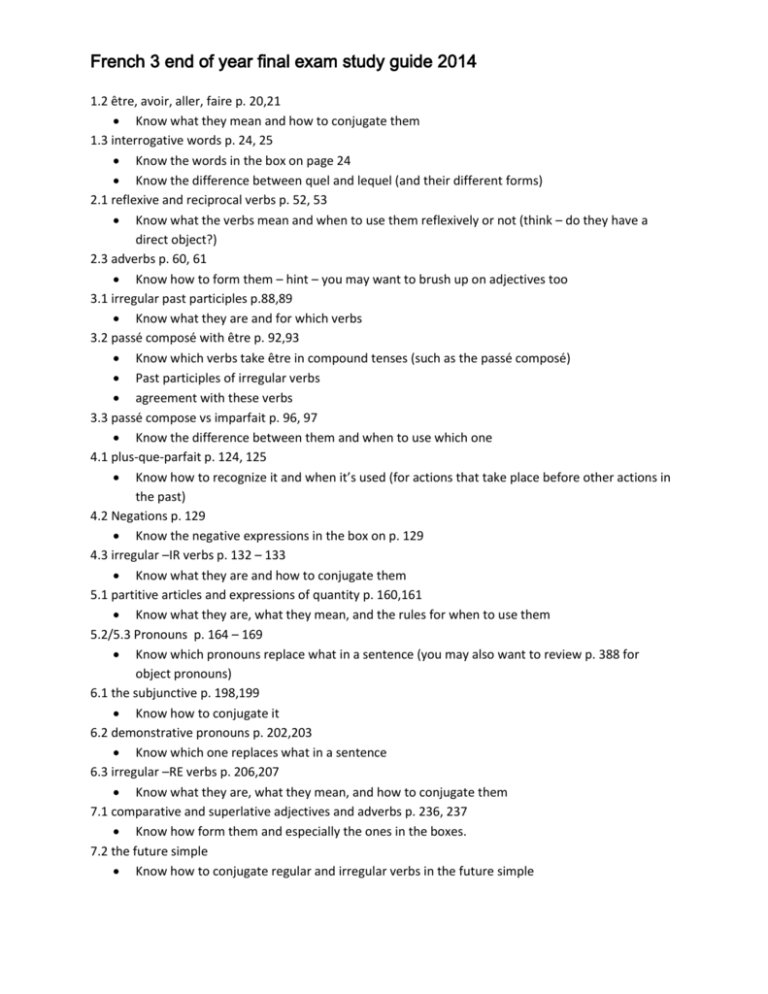
French 3 end of year final exam study guide 2014 1.2 être, avoir, aller, faire p. 20,21 Know what they mean and how to conjugate them 1.3 interrogative words p. 24, 25 Know the words in the box on page 24 Know the difference between quel and lequel (and their different forms) 2.1 reflexive and reciprocal verbs p. 52, 53 Know what the verbs mean and when to use them reflexively or not (think – do they have a direct object?) 2.3 adverbs p. 60, 61 Know how to form them – hint – you may want to brush up on adjectives too 3.1 irregular past participles p.88,89 Know what they are and for which verbs 3.2 passé composé with être p. 92,93 Know which verbs take être in compound tenses (such as the passé composé) Past participles of irregular verbs agreement with these verbs 3.3 passé compose vs imparfait p. 96, 97 Know the difference between them and when to use which one 4.1 plus-que-parfait p. 124, 125 Know how to recognize it and when it’s used (for actions that take place before other actions in the past) 4.2 Negations p. 129 Know the negative expressions in the box on p. 129 4.3 irregular –IR verbs p. 132 – 133 Know what they are and how to conjugate them 5.1 partitive articles and expressions of quantity p. 160,161 Know what they are, what they mean, and the rules for when to use them 5.2/5.3 Pronouns p. 164 – 169 Know which pronouns replace what in a sentence (you may also want to review p. 388 for object pronouns) 6.1 the subjunctive p. 198,199 Know how to conjugate it 6.2 demonstrative pronouns p. 202,203 Know which one replaces what in a sentence 6.3 irregular –RE verbs p. 206,207 Know what they are, what they mean, and how to conjugate them 7.1 comparative and superlative adjectives and adverbs p. 236, 237 Know how form them and especially the ones in the boxes. 7.2 the future simple Know how to conjugate regular and irregular verbs in the future simple
